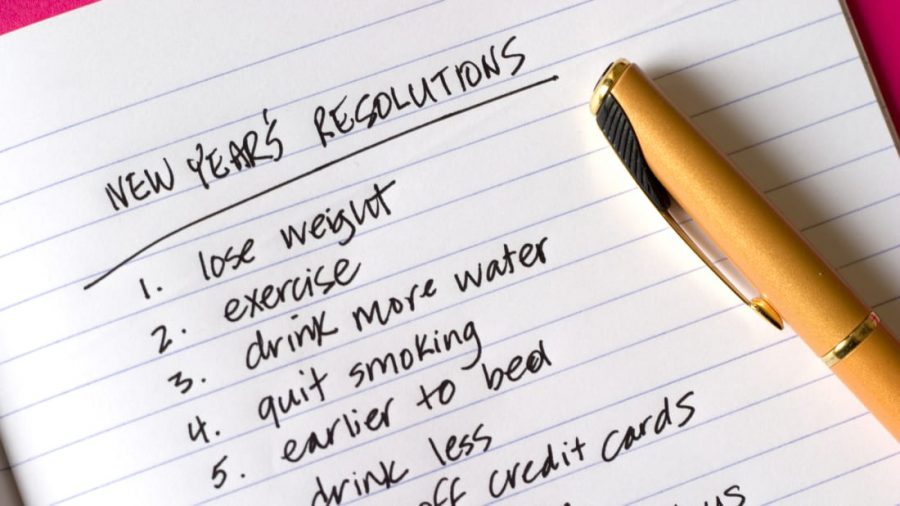New Year’s Resolutions
February 5, 2021
When the clock strikes midnight and it is finally the new year, we all tend to think about what our New Year’s resolutions are going to be. There is a wide range of resolutions to choose from or focus on the most. From losing weight, exercising more, learning a new skill, or even quitting a bad habit, there are just so many to choose from. Despite the best intentions, once the glow of the new year wears off, many people struggle to make good on their plans. The resolutions tend to last for a short amount of time and then are completely forgotten about soon after. We all struggle with this and it happens quite often. But the real question is, what are the most popular resolutions and how do we get them to actually stick?
The ten most popular resolutions are to exercise more, lose weight, eat healthier, get organized, learning a new skill or hobby, reduce stress, save money or spend less money, quit smoking, spend more time with friends/family, and finally to read more. According to a study published in the Journal of Clinical Psychology, only 46% of people who made their New Year’s resolutions were successful. That means that only half of the people who set a goal for the new year will fail and not stick to it. The study also involved non-resolvers, people who did not make a New Year’s resolution, but had a goal they wanted to achieve that year. Only 4% of non-resolvers were successful at achieving their goals.
We all want to make our resolutions realistic and actually work. Some tips and steps to making your new year’s resolutions actually stick are to first mentally prepare for change. Changing old ways and habits is no easy task, so the most important things to do are to stay positive, know that change should be a gradual process, build onto smaller changes, and allow little room for error. Next is to set a goal that genuinely motivates you.
Many people set goals that are not for themselves and based off of others. Do something that is important to only you so it is more achievable in the long run. A final tip is to be specific. When writing out your goals/resolutions, make sure you are specific and make smart goals. Write the exact thing you want to achieve such as “I want to lose 1o pounds of body weight” or even “I want to finish reading The Hunger Games in a month.” Specifics help and give the best end results.
“I didn’t make any New Year’s resolutions honestly because I can’t keep up or follow them.” Emerson junior Sierra Rivers shares.
“I made resolutions to workout more and eat healthier which are pretty common to do but I have followed them so far.” Emerson junior Lilly Gildea also shared.
There are many other tips and strategies that help make those resolutions actually stick and not fall through but those are definitely the most helpful. With a new year ahead, there are so many ways to grow as a person and do better. Resolutions might seem like a stupid thing people do every year but in reality they do actually help us feel accomplished and learn better habits in the long run.







